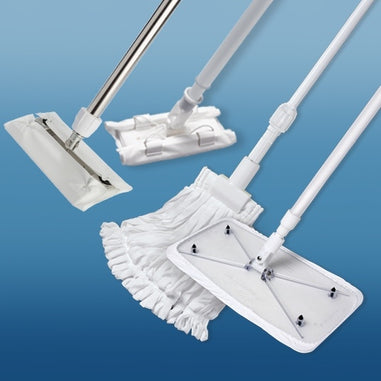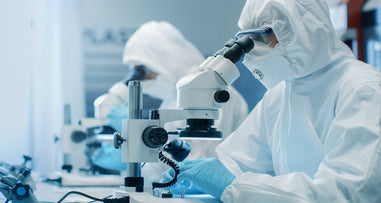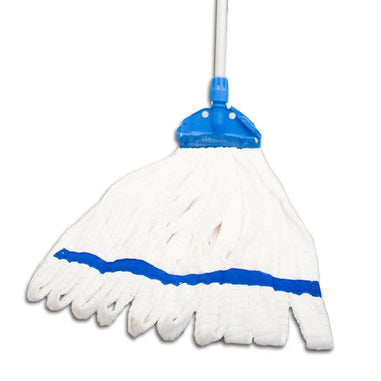- No products in the cart.
What is a Class 1000 (ISO 6) Cleanroom?
A class 1,000 cleanroom, also known ISO 6, is extremely clean, as this classification only permits up to 1,000,000 particles of size ≥0.1 µm per cubic foot of air. A class 1,000 cleanroom has 500-1,000 times fewer particles per ft3 of air than a typical indoor office.
Manufacturing industries that use class 1,000 cleanrooms include aerospace, film, fine chemical, lithium ion battery, medical device, optical, and solar. Although air purity is paramount, an ISO 6 environment is not clean enough for the most critical applications such as semiconductor and pharmaceutical production.
Although setting up a cleanroom can be daunting, a disciplined approach to following policies, procedures, and best practice can yield a successful daily routine. Ensure that your lab has all the resources it needs to run a world-class certified class 1,000 cleanroom by stocking up at Lab Pro’s Cleanroom Manufacturing page.

ISO 6 Cleanroom Classifications and Compliance
The naming for ISO classroom identifications (ISO standard 146144-1:2015) are based on the decimal logarithm of the number of permissible particles ≥ 0.1 µm or larger per m3 of air, while the numbered classes of Federal Standard 209E indicate the number of permissible particles ≥ 0.5 mm/ft3 of air.
Class 1,000 cleanrooms and cleaner facilities employ the use of laminar, or unidirectional, airflow to remove airborne particulates. The air sweeps down the room in one direction at 0.3 - 0.5 m/s and departs through the floor. Ultra Low Penetration Air (ULPA) Filtration is 99.9995% efficient, removing airborne particles up to 0.12 micron.
Airborne Particulate Cleanliness for Class 1,000 Cleanroom
|
Micron |
0.1 |
0.2 |
0.3 |
0.5 |
1 |
5 |
|
Particles/m3 |
1,000,000 |
237,000 |
102,000 |
35,200 |
8,320 |
293 |
Schedule of Tests to Demonstrate Continuing Compliance
|
Test Parameter |
Class |
Maximum Time Interval |
Test Procedure |
|
Particle Count Test |
> ISO 5 |
12 Months |
ISO 14644-1 Annex A |
|
Air Pressure Difference |
All Classes |
12 Months |
ISO 14644-1 Annex B5 |
|
Airflow |
All Classes |
12 Months |
ISO 14644-1 Annex B4 |
In an ideal scenario, to achieve ISO 6 air cleanliness, you must enter the cleanroom via an ISO 8 (ante-room), followed by an ISO 7 before entering. While that is not always feasible, regulations require that two connected rooms should be no more than two orders of magnitude difference in cleanliness class. In some system designs, you can get to a Class 1,000 cleanroom by passing through an airlock.
Class 100 cleanrooms and cleaner facilities employ the use of laminar, or unidirectional, airflow to remove airborne adulterants. The air sweeps down the room in one direction at 0.3 - 0.5 m/s and departs through the floor. Ultra Low Penetration Air (ULPA) Filtration is 99.9995% efficient, removing airborne particles up to 0.12 micron.
Some class 1,000 cleanrooms employ the use of unidirectional airflow, while others use non-unidirectional airflow. Federal and ISO recommendations for air changes are listed below, although smaller spaces (4x6) may need fewer air changes per hour to reach cleanliness standards.
Recommended Airflow Velocity Standards
|
Class: ISO 146144-1 (Federal Standard 209E) |
Average Airflow Velocity (m/s (ft/min)) |
Air Changes Per Hour |
Ceiling Coverage |
|
ISO 6 (Class 1,000) |
0.127-0.203 (25-40) |
150-240 |
25-40% |
Garments
The American "Institute of Environmental Sciences and Technology" (IEST) recommends the following clothing for Class 1,000 (ISO6) cleanrooms.
Non-aseptic cleanroom application
Frequency of Change: 3 Times/Week
Aseptic cleanroom application
- Hood
- Hair Cover
- Coverall
- Boots
- Facial Cover
- Gloves
Frequency of Change: Per Entry
Source: IEST - Garment System Considerations for Cleanrooms and Other Controlled Environments.
To minimize contamination of particulates in your ISO 6 cleanroom, only non-shedding cleanroom PPE is permitted. They are typically made of Gortex, Tyvek, Dacron or other nonwoven material like polypropylene or other microporous materials. Lab Pro stocks a wide variety of sizes and styles of garments suitable for your Class 1,000 cleanroom.
Coverall/lab coat
- ISO Class 6 cleanroom Tians High Performance Static Dissipative Frock
- Lint free film coated frock for use in critical, ESD and low particulate clean environments.
- Suitable for exposure to bloodborne pathogens, some hazardous liquids, and any wet general maintenance areas.
- ISO Class 6 cleanroom Tians high performance lab coats
- Low linting lab coat for use in critical and low particulate clean environments.
- High filtration fabric holds out 98.8% of particles at 3 microns, and also provides excellent splash protection from non-hazardous fluids.
- ISO Class 6 cleanroom Tians high performance coverall with hood & zipper
- Latex/free film coated coverall for use in critical and low particulate clean environments
- Suitable for exposure to bloodborne pathogens, some hazardous liquids, and where liquid splash is a concern
- Static dissipative polyethylene/propylene fabric with ≤1011 surface resistance
- Attached hood, zipper front entry, elastic wrists, elastic ankles, elastic lower back, and a storm flap zipper cover, serged seam construction
Bouffant
- Low-linting polypropylene bouffant caps
Beard Cover
- Latex-free beard covers
Face Mask
- 3ply disposable non-woven fiber fabric face masks
Gloves (vinyl, latex, nitrile)
Shoe Cover
- LabClean Shoe Covers are made of 100% spun bond polypropylene and are non-skid
Gowning Area
Set up the gowning area for easy access to cleanroom garments.
- Tacky mats are needed at the entrance of a gowning room to remove particulates from before entering.
- Have shoe covers available to don after stepping on the tacky mats and before entering the gowning room.
- Setup up a garment supply area with frocks and gowns on one side and a separate shelf for hoods, masks, and other supplies. Metro garment racks are made of industry compliant stainless steel and are built for cleanliness and stability. Some storage cabinets are equipped with HEPA filtration to whisk away unwanted particles.
- Use an easy-to-clean gowning bench to don coverall. Have sterile wipes available for cleaning the bench after each use.
- Demarcate the clean/dirty floor with cleanroom tape. 5S systems can help improve efficiencies in cleanrooms.
- Only laundered booties are allowed in designated clean area (which is frequently cleaned with a fresh, nonwoven mop).
In the Cleanroom - Office Supplies
Everyday items such as pen, notepads, and paper are unsuitable for cleanroom settings. Lap Pro stocks the sundries you need for cleanroom recordkeeping.
- Cleanroom notebooks
- Cleanroom paper and sticky notes
- Cleanroom pen (this says microscope parts and accessories??)
In the Cleanroom - Tools and Equipment
Lab Pro sells a wide variety of devices that are especially designed for use in cleanrooms. For an aseptic process, it is important that materials won’t shed, scratch or outgas, and that surfaces can easily be sterilized.
- Yamato Class 100 ovens for use in your ISO 6 cleanroom
- Tools like tweezers, forceps, pliers, brushes, and hemostats
- Cleanroom swabs
- Cleanroom vacuum systems
- Cleanroom razor blade
- Metro microban dunnage racks and utility carts are rust and mildew
- Meters and monitors
- Racks, shelving, boxes, and bins
- Thermal holding and transport
- Trashcans and liners
Cleanroom Chemicals
Cleaning
- ISO Cleanroom Class 5-6 polyester wipes are 100% virgin, continuous-filament polyester in a double-knit, no-run interlock design with a laser-cut, sealed edge. Recommended for use in cleanroom critical environments and a wide variety of applications including cleaning medical devices, electronics displays, instrument panels, semiconductors and microelectronics products.
- ISO Cleanroom Class 6-7 non-woven wipes are composed of a hydroentangled, nonwoven blend of 55% cellulose and 45% polyester. Recommended for use in cleanroom critical environments such as research labs, hospitals, and electronics manufacturers.
Cleanroom Testing
- Chemtronics foam or flocked sampling swabs
Dress Your Class
Class 1,000/ISO 6 cleanrooms are widely used in many important industries such as biotech, nanotechnology, and electronics manufacturing. Keep your standards of hygiene high to keep production rolling by setting up your certified cleanroom with Lab Pro.
Note: These products and chemicals are meant to be used for research, industrial work, cleaning or disinfecting and should always be stored out of the reach of young children or infants.
For over 40 years, Lab Pro Inc. has been committed to delivering the highest quality chemicals, ESD protection, laboratory and cleanroom supplies to medical device and electronic manufacturing laboratories worldwide. To learn more, visit the biggest Lab Supply showroom in California, or contact us online or at 888-452-2776.
USA source for ISO documents - http://www.iest.org












































